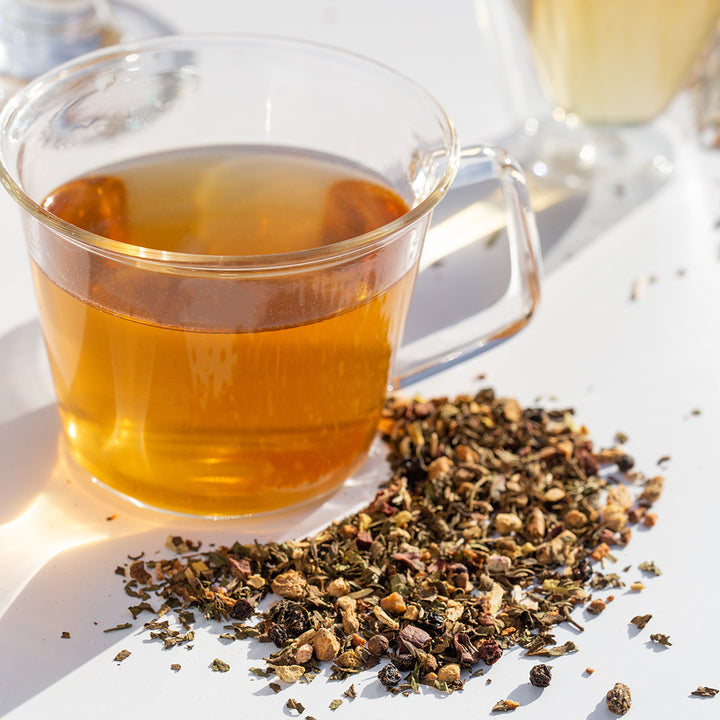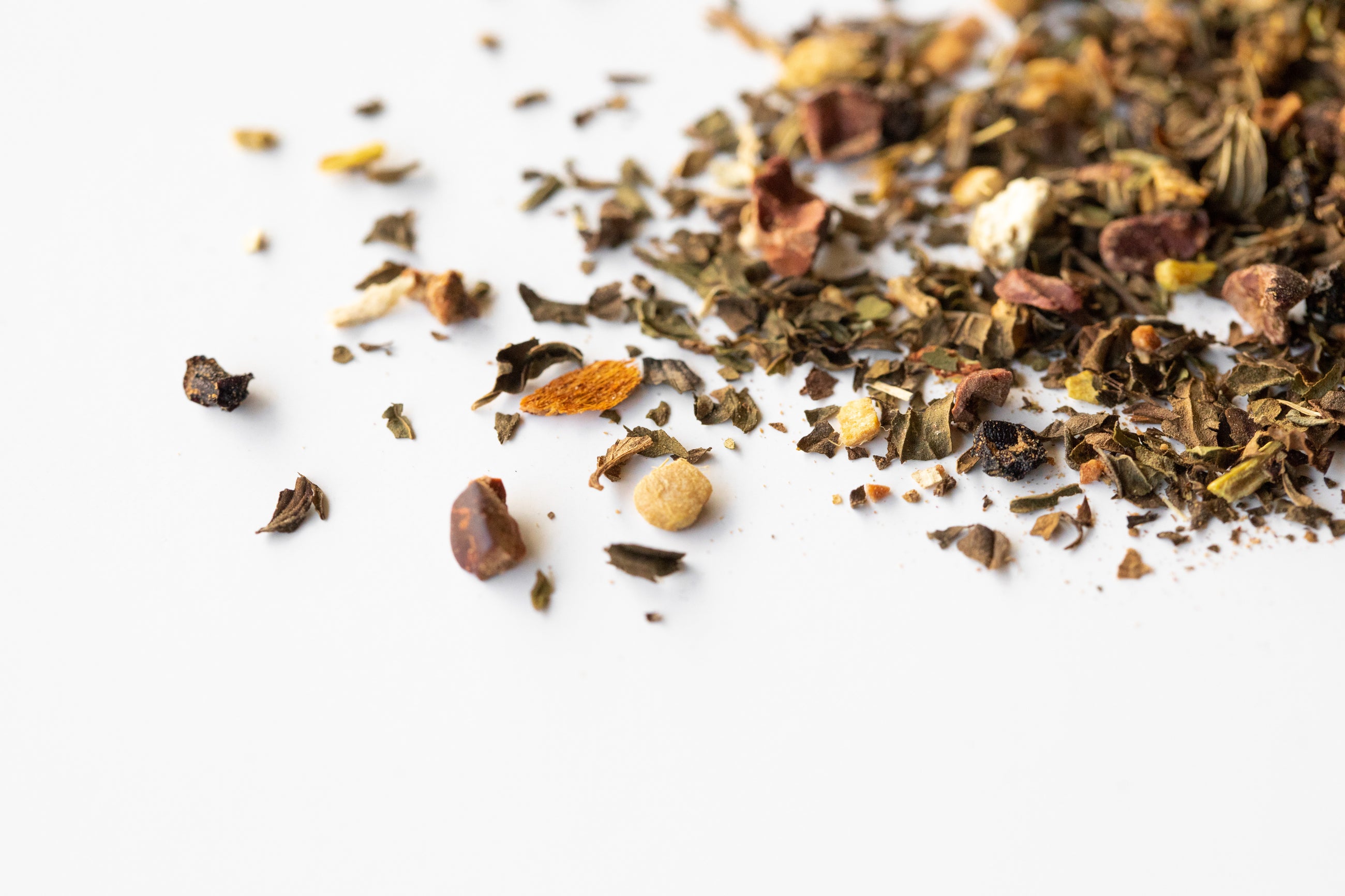There’s a delicate balance between flavor and function at work in the eclectic combination of ingredients in this revitalizing infusion. In formulating Soothe Sayer, Head Teamaker Ravi Kroesen drew inspiration from the Swiss health spas of the early 20th Century. Through his expertise and deep knowledge of botanicals, he succeeded in distilling the invigorating atmosphere of an alpine chalet into a cup of tea. Soothe Sayer includes, among other ingredients, wild cherry bark, elderberry, and echinacea, all of which are said to be beneficial for throat ailments. Combined with licorice and ginger, this soothing elixir is poised to provide relief from cough or congestion all winter long. Rich Northwest peppermint, tart elderberry, and a dash of nutmeg will evoke pleasant memories of “bright copper kettles and warm woolen mittens.” Without a doubt, Soothe Sayer will find its place amongst your favorite things during the yuletide season this year.
Gifting has never been easier.
Enter your message, then select when and how to send it (email or SMS).


